Studies on the Life and Influence of John Wycliffe (11 vols.)
Digital Logos Edition
This product has been transferred from Community Pricing to Pre-Pub. The actual funding level may be lower than it appears, which could delay production. The amount of funding still needed will be evaluated and updated soon.
Overview
John Wycliffe—Oxford scholar, lay preacher, Bible translator, and the Reformation’s “morning star”—led a tumultuous life that reverberated throughout Western history. This collection gathers valuable biographies and introductions ranging from engaging histories to scholarly studies on Wycliffe’s place in Christian history. Survey the landscape of the church in England and the dissidents before Wycliffe. Discover the history of the first complete Bible in the English language, and research the significance of the Lollards and university Scholars in the buildup to Luther’s theses and the transition from the Middle Ages to modernity. This collection offers valuable resources to any student of the Reformation and the Bible’s history.
In the Logos edition, Studies on the Life and Influence of John Wycliffe is enhanced by amazing functionality. Scripture citations link directly to English translations, and important terms link to dictionaries, encyclopedias, and a wealth of other resources in your digital library. Perform powerful searches to find exactly what you’re looking for. Take the discussion with you using tablet and mobile apps. With Logos Bible Software, the most efficient and comprehensive research tools are in one place, so you get the most out of your study.
Study Wycliffe’s thought firsthand with The Works of John Wycliffe (12 vols.).
Key Features
- Presents the history of the first complete Bible in English
- Describes the significance of the Wycliffe, the Lollards, and other pre-Reformation figures
- Surveys the landscape of the fourteenth-century Christian church in England
Product Details
- Title: Studies on the Life and Influence of John Wycliffe
- Volumes: 11
- Pages: 2,981
- Christian Group: Evangelicals
- Resource Type: Biographies
- Topic: Medieval History
Individual Titles
- John Wycliffe and His English Precursors by Gotthard Victor Lechler
- Wycliffe: An Historical Study by Dyson Hague
- Wycliffe and Movements for Reform by Reginald Lane Poole
- The Life of John Wycliffe by Thomas Murray
- John Wycliffe and the First English Bible: An Oration by Richard S. Storrs
- John de Wycliffe: The First of the Reformers by Emily Sarah Holt
- The Peasant’s Rising and the Lollards by Edgar Powell and George Macaulay Trevelyan
- The Life of John Wicliff, D.D. by Daniel Curry
- The People’s Faith in the Time of Wyclif by Bernard Lord Manning
- John Wyclif: Last of the Schoolmen and First of the English Reformers by Lewis Sergeant
- John Wyclif’s De Veritate Sacrae Scripturae by Rudolf Buddensieg
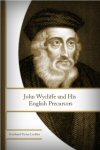
Gotthard Lechler’s biography studies Wycliffe in the context of the whole Protestant Reformation. Lechler hones in first on the Englishman before Wycliffe who shared his reformer’s spirit—including Robert Grossetête, Henry Gracton, William Occam, Richard Armagh, and Thomas Bradwardine. Lechler’s history of Wycliffe’s life from youth until his first conflict with the Church illuminates the factors that spurred him toward becoming the Reformation’s morning star. Lechler then studies Wycliffe’s pioneering work in three roles: pastor, translator, and theologian. This classic biography will help readers understand the earliest rumblings of reformation and John Wycliffe’s foundational significance to the Protestant tradition as a translator and more.
Gotthard Victor Lechler (1811–1888) was a German Lutheran theologian. He studied under Ferdinand Christian Baur at the University of Tübingen and was professor ordinarius of historical theology and superintendent of University of Leipzig.
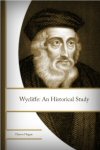
“A career like Wycliffe’s should never be forgotten by men who speak the English tongue,” begins Dyson Hague in his study of the revolutionary figure. Hague’s biography apprises general audiences of Wycliffe’s life and legacy, tracing how his deeds have echoed through Christian history, so that “John Wycliffe being dead, yet speaketh.” This study concisely introduces readers to Wycliffe and his importance for anyone who has read the Bible in her native tongue.
Dyson Hague (1857–1935) was a Canadian evangelical Anglican rector, author, and lecturer. Hague earned his doctor of divinity from Wycliffe College and served in parish ministry and as professor of liturgics and ecclesiology at Wycliffe College.
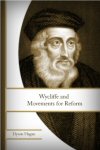
Tracing the early challenges to the Catholic Church’s structure and doctrine, British historian Reginald Lane Poole covers Pope Boniface VIII through the final ecumenical council before Luther posted his 95 Thesis. Poole’s study revolves around the loves and work of Wycliffe. Those interested in Reformation history will gain valuable insight into the events around Europe that led up to Luther, especially Wycliffe and his translation work.
Reginald Lane Poole (1857–1939) was a British historian, lecturer, and the keeper of the archives at Oxford. He wrote several major works on the Reformation.
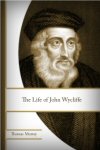
This brief volume clearly and precisely lays out the events of Wycliffe’s life. Thomas Murray succinctly provides a picture of the Reformer’s life, providing insight into his epoch-making acts and introduction to the Reformation’s morning star.
Thomas Murray (1792–1872) was a Scottish historian.
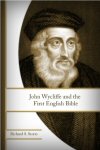
Delivered before the interdenominational audience of the American Bible Society, Richard S. Storr’s address imparts an inspiring account of the life and work of John Wycliffe in under 100 pages. Storrs reports on the profound importance of Wycliffe’s Bible, and all English speaking Christians’ indebtedness to the work of the Reformation’s morning star.
Richard Salter Storrs (1821–1900) was an American Congregational clergyman and historian. He was associate editor of the New York Independent from 1848–1861 and president of the American Board of Commisioners for Foreign Missions from 1887–1897.
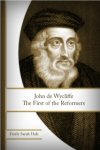
Written by British historical novelist Emily Sarah Holt, John de Wycliffe is an accessible biography of the early Reformer. Holt’s narrative delivers an engaging account of Wycliffe’s youth, education, ministry, trials, and the impact of his work.
Emily Sarah Holt (1836–1893) was an English historical novelist and children’s writer who published more than 50 works.
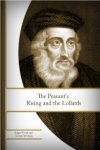
This volume features several historical documents from the fourteenth century relating to John Wycliffe and the Lollards. The documents are presented in their original Middle English and Latin.
Contents
- Extracts and Transcripts of Documents Relating to the Peasants’ Rising
- Documents Relating to the Trial of John of Northampton (1387–1388)
- Documents Relating to Lollards (1382–1398)
- Foreigners Holding Places in the Church in England
- Table Showing the Change of Personnel of the County Members in the House of Commons
Edgar Powell (1853–1939) was a British historian.
George Macaulay Trevelyan (1876–1962) was a British historian, and one of the last historians in the Whig tradition.
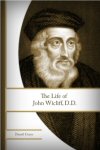
Daniel Curry’s Life of John Wicliff presents a “clear, correct, and concise statement of the history and doctrines of a man to whom the whole world is largely indebted.” Curry’s work succinctly introduces readers to Wycliffe’s life and the many controversies that followed him. Curry also surveys historical responses to Wycliffe’s life and work.
Daniel Curry (1809–1887) was an American historian and a minister in the Methodist Episcopal Church.
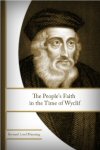
Bernard Lord Manning takes a fascinating look at how the average man received religious instruction in the fourteenth century. Manning examines three principle channels of information: Mass, sermons, and the confessional. Manning also explains baptism, communion, and church doctrine of the church in England before Wycliffe emerged. His work provides valuable insight into Wycliffe’s life and legacy based on what the landscape of Christianity was before his time, rather than after it.
Bernard Lord Manning (1892–1941) was a scholar of Jesus College, the Donaldson Bye-Fellow of Magdalene College, and a Lightfoot scholar at the University of Cambridge.
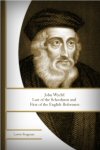
This biography of Wycliffe emphasizes his role as an “Oxford Schoolman.” Lewis Sergeant traces the influence of such schoolmen as pioneers of the Reformation and the emergence of education and other factors leading to the modern era. Sergeant’s work provides valuable information to students of the Reformation and the transition from the Middle Ages to Modernity.
Lewis Sergeant (d. 1902) was also the author of The Franks, Greece in the Nineteenth Century, and New Greece.
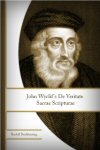
This volume features John Wycliffe’s Latin work De Veritate Sacrae Scripturae, as well as critical and historical notes in English from Rudolf Buddensieg. The work provides valuable insight into Wycliffe’s view of Scripture.
Rudolf Buddensieg (1844–1908) was a nineteenth century scholar and the author of John Wiclif: Patriot & Reformer.
About John Wycliffe
John Wycliffe (1328–1384) was an English scholar, theologian, philosopher, preacher, and Bible translator. An early dissident of the Roman Catholic Church, Wycliffe’s works on reforming the Church spawned a movement known as Lollardy, a precursor to the Protestant Reformation. Wycliffe was also an early advocate for translating the Bible into the common language, for “. . . it helpeth Christian men to study the gospel in that tongue in which they know best Christ’s sentence.” Wycliffe’s tracts and treatises argued for the Scriptures as the sole authority for doctrine and ecclesial polity, and his sharp attacks on the Church caused his works to be banned. Years after his death, he was declared a heretic at the Council of Constance and his body was exhumed and his remains burned.